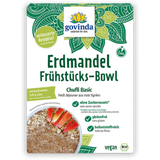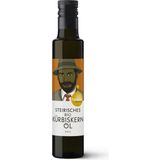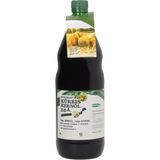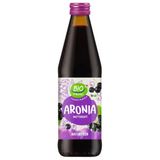Fasting Like Hildegard of Bingen
Hildegard of Bingen was a German Benedictine abbess who is very famous in the German speaking world for her role in natural science. She was devoted to the study of the effects of spices in the natural healing process. She wrote many texts regarding such topics.
Scholars have been interested in the concept of fasting for ages. The Greek physician Hippocrates advocated fasting as he believed it would allow your "inner doctor" to act.
Hildegard of Bingen's views on fasting have nothing to do with starvation diets. Her diets were not prescribed for weight loss. Her basic idea was to eliminate unhealthy foods for a set period of time to regain health. If you are considering fasting, this is an important idea to keep in mind.
A lot of energy is needed for our body's daily processing of food. During fasting, this energy is available for other activities in the body, which is why fasting detoxification and self-healing processes. The metabolism is brought back into swing, the body has more energy and even chronic diseases can be mitigated. In addition, fasting leads to mental clarity.
To truly reap the benefits of therapeutic fasting, you have to do it right.
Normally the fasting lasts between six and twelve days. You should prepare for this time by starting to limit your diet. Two days a week before you start your fast, eat a light amount of food. Two days before you begin fasting, try to prepare mentally. You can also start the process by drinking two to three liters of fennel or fasting tea.
The Fasting
Your menu during fasting should look like this:
Morning: eat a serving of cooked spelt oatmeal with dried fruit and energizing spices like bertram, galangal, cinnamon or psyllium.
At noon have two or three bowls of fasting soup. Fasting soup is a vegetable soup with quality ingredients like spelt semolina, spices and vegetables. In the afternoon, you can have an apple and Hildegard spice cookies.
Dinner: have another one or two bowls fasting soup and up to four spice cookies.
Drink 2-3 liters of fennel tea or fasting tea throughout the day.
Physical activity is also very important. Daily hikes are a great idea, but you can also do other exercises. Plan in periods of relaxation as well.
What spices are good for fasting?
Now we come to some spices that Hildegard of Bingen recommended for fasting:
Bertram is a plant that is native to the Mediterranean region. The powder of the roots is used to treat the "mucus in the head". It strengthens the healthy as well as the sick, helps with digestion and is good for stomach problems.
Ginger is the jack of all trades of spices. With a high proportion of essential oils, it stimulates digestion and metabolism.
Galangal is also called mild ginger. Hildegard of Bingen used it to treat respiratory diseases and fever.
Nutmeg served Hildegard of Bingen to increase well-being.
Cinnamon promotes metabolism and when mixed into warm wine, mitigates gouty pain.
Cloves were prescribed for headaches. The flavor relieves mental exhaustion and clears the head.
Recipe:
Spice Cookies by Hildegard of Bingen:
400 g spelt flour
250g butter
150 g brown sugar
200g chopped almonds
2 eggs
20 g ground nutmeg
20 g cinnamon powder
10 g ground cloves
a pinch of salt
some water
Mix the ingredients and knead them until a nice, smooth dough forms. Shape the dough into two rolls and chill it in the refrigerator. Then cut the rolls into slices and bake them at 180 degrees for 15-20 minutes.
Note: Do not eat more than six cookies per day.
Latest reviews
-
 1.0 (1)
1.0 (1)Govinda Organic Tigernut Breakfast Bowl Basic, 500 g
- Gluten-free & lactose-free
- No added sugar
- With apple & cinnamon flavour
€ 7,79 (€ 15,58 / kg)Delivery by May 09
-
 4.9 (8)
4.9 (8)Ölmühle Fandler Organic Pumpkin Seed Oil, 500 ml
- 100 % pure pumpkin seed oil
- Organic quality
- Nutty, velvety, aromatic
€ 21,99 (€ 43,98 / l)Delivery by April 16
-
 4.9 (76)
4.9 (76)Bauernhof JÖBSTL, vulgo STINDL Styrian Pumpkin Seed Oil PGI, 1.000 ml
Bestseller- 100% pure Styrian pumpkin seed oil PGI.
- Gold medal winner with the highest points 20 years in a row
- Gault&Millau Award 2019, 2020 & 2023
€ 26,99 (€ 26,99 / l)Delivery by April 16
-
 5.0 (1)
5.0 (1)BIO PRIMO Organic Pure Aronia Juice, 330 ml
- 100% aronia juice
- Naturally cloudy
- Intense fruity taste
€ 3,29 (€ 9,97 / l)Not available at the moment
Magazine Articles:
Discover Piccantino :
-
Austria: Free standard delivery from € 49,90
-
Free
returns -
24-hour shipping
More than 11.500 products
